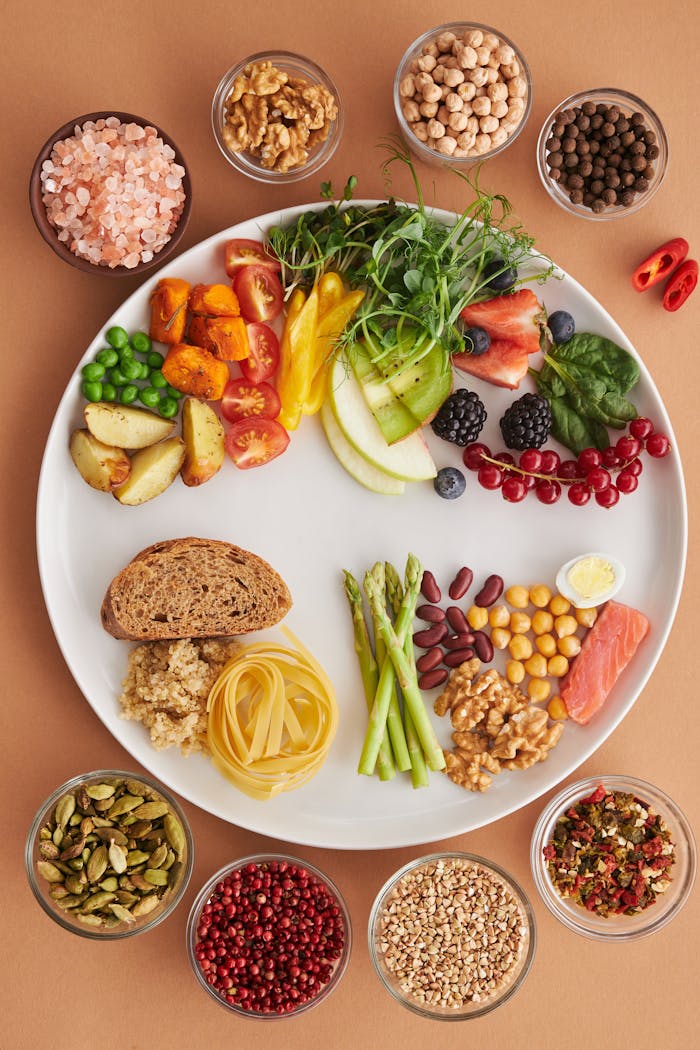Nutrition is not a one-size-fits-all approach. Our dietary needs vary depending on our individual goals, whether it’s weight loss, muscle gain, improved athletic performance, or simply maintaining overall health. Here’s a breakdown of how different goals necessitate different actions in nutrition:
- Weight Loss:
- Calorie Deficit: Achieving weight loss typically requires consuming fewer calories than your body expends. This may involve reducing portion sizes, choosing lower-calorie foods, and being mindful of calorie-dense options.
- Balanced Diet: While reducing calories is important, it’s equally crucial to maintain a balanced diet rich in nutrients. Focus on filling your plate with lean proteins, whole grains, fruits, and vegetables to support overall health while losing weight.
- Monitoring Macronutrients: Pay attention to the balance of macronutrients (carbohydrates, proteins, and fats) in your diet to ensure you’re meeting your body’s needs while still creating a calorie deficit.
- Muscle Gain:
- Calorie Surplus: Building muscle requires consuming more calories than your body burns, known as a calorie surplus. Aim to increase your calorie intake primarily through protein-rich foods to support muscle growth.
- Protein Intake: Protein is essential for muscle repair and growth. Increase your protein intake to around 1.2 to 2.2 grams per kilogram of body weight per day, depending on your activity level and goals.
- Strength Training: Incorporate resistance training into your exercise routine to stimulate muscle growth and adaptation.
- Athletic Performance:
- Nutrient Timing: Timing your meals and snacks around workouts can optimize energy levels and recovery. Consume a balanced meal containing carbohydrates and protein before and after exercise to fuel your workouts and support muscle repair.
- Hydration: Proper hydration is crucial for athletic performance. Drink water before, during, and after exercise to maintain hydration levels and replace fluids lost through sweat.
- Carbohydrate Loading: Endurance athletes may benefit from carbohydrate loading before long-duration events to maximize glycogen stores and prolong performance.
- Overall Health Maintenance:
- Nutrient-Rich Foods: Focus on consuming a variety of nutrient-rich foods to support overall health and well-being. Emphasize fruits, vegetables, whole grains, lean proteins, and healthy fats in your diet.
- Portion Control: Even if weight loss isn’t a primary goal, portion control is still important for maintaining a healthy weight and preventing overeating.
- Moderation: Allow yourself to enjoy occasional treats while prioritizing nutrient-dense foods most of the time.
- Medical Conditions:
- Certain medical conditions may require specific dietary interventions. For example, individuals with diabetes may need to monitor carbohydrate intake and blood sugar levels, while those with high blood pressure may need to limit sodium intake.
In summary, achieving different nutritional goals requires tailored approaches that consider individual needs, preferences, and circumstances. Whether you’re aiming to lose weight, build muscle, enhance athletic performance, or maintain overall health, understanding how to adjust your diet accordingly is key to success. Consulting with a registered dietitian or nutritionist can provide personalized guidance and support to help you reach your goals effectively and sustainably.


